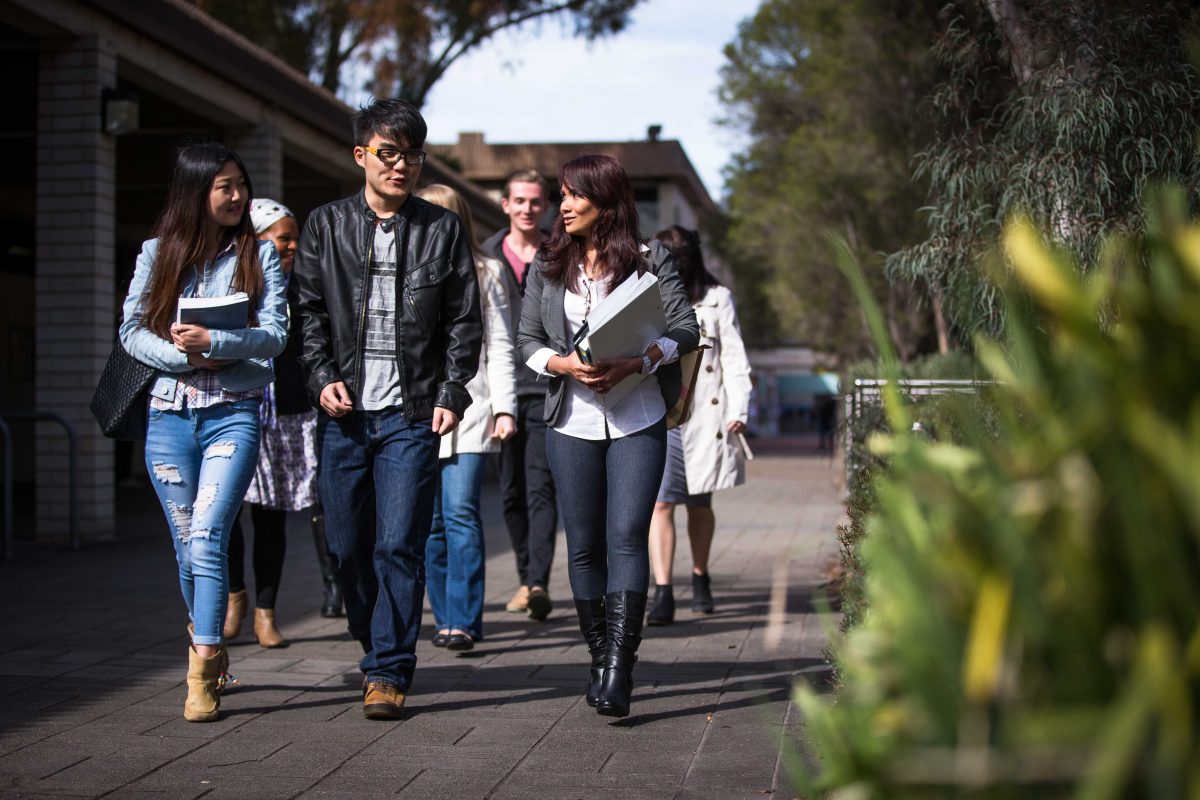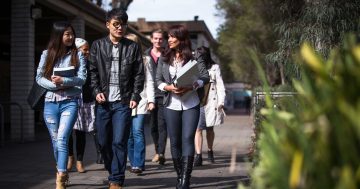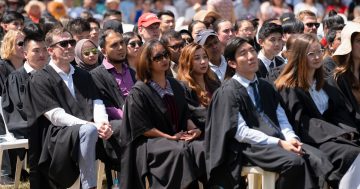
Universities Australia says 14,000 jobs could be lost in the sector if international student enrolments are capped. Photo: Supplied, University of Canberra.
Australia’s universities have warned that 14,000 jobs could be lost to the sector if the Federal Government goes ahead with its plan to cap the international student intake.
The Education Services for Overseas Students Amendment (Quality and Integrity) Bill 2024 seeks to cap the number of international student enrolments for universities across the country for two years from next year.
But Universities Australia chief executive Luke Sheehy has told a Senate inquiry the Bill was a “political smokescreen” to help Labor get the upper hand in the “poll-driven battle over migration” while the Coalition blamed the housing crisis on immigrant students.
Mr Sheehy said if the legislation was successful it would lead to 14,000 job cuts across Australian universities and have a wider impact on the economy.
“The impact of having 60,000 fewer international students arrive on our shores is significant,” Mr Sheehy told senators.
“It would represent a $4.3 billion hit to the economy and could cost the university sector alone over 14,000 jobs – not to mention the flow-on effect for small businesses which rely heavily on international students.
“No other major export industry is treated the way international education is right now. Not mining, not agriculture, not tourism. None of them.”
The government seems set on implementing the cap from 1 January, but has not finalised the limit to be imposed.
It has dismissed reports there might be a 40 per cent cap.
Mr Sheehy said the number of student visas being granted had already dropped by almost 23 per cent over the past year and that trend should not be allowed to continue.
He said the government should stop “taking a sledgehammer” to the international education sector.
“Using students as cannon fodder in a poll-driven battle over migration and housing simply doesn’t add up,” he said.
“The danger of using these talented people as scapegoats to blame the housing crisis on is what we stand to lose by telling them to stay home.”
In a subsequent media interview, Mr Sheehy said he wanted to protect as many higher education jobs as possible.
Universities Australia calculated the 14,000 jobs lost figure on the current visa and visa processing changes introduced by the Federal Government in December last year under a controversial Ministerial Direction.
“What we’re seeing with Ministerial Direction 107 is chaos in the visa processing system and 60,000 fewer higher education international student visas issued in the last year alone,” Mr Sheehy said. “On our calculations, with four international students supporting one higher education job, 14,000 jobs could be at risk.
“We don’t want to see any jobs lost in higher education because it’s such an important part of Australia’s economy, and teaching students and delivering the research that we do is so important for our economic and social success.
“We are making the case to the Treasurer, to the Prime Minister and his ministers not to undermine this sector unnecessarily because it’s delivering economic growth for Australia.
“There’s an interdependency… not just with our sector, but other sectors that rely on international students and their families coming to Australia – like tourism and hospitality.”
According to Department of Home Affairs data, 376,731 student visas were granted in the financial year to 30 June this year.
Greens higher education spokesperson Mehreen Farqui, who sits on the Senate committee examining the impact of the government’s Bill, said it was time Labor listened to the sector.
“Almost all of the submissions to the inquiry into this terrible Bill don’t support it, raising significant concerns that the Bill will cause major and long-lasting damage to Australia’s higher education sector,” Senator Farqui said.
“This is clearly a migration policy disguised as an education policy. Labor is crushing universities in a bid to look tough on borders and compete with the Liberals on cruelty.
“Using international students as cash cows and then scapegoats for the Labor government’s failure to provide affordable housing is pure racist dog whistling which targets and harms international students and migrants.
“Not only are these caps damaging to Australia’s reputation as a destination for international students, they are also a direct attack on the fundamental principles of student choice and university independence.”
Original Article published by Chris Johnson on Riotact.










